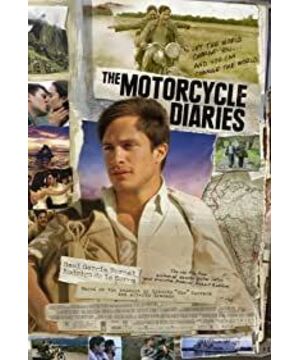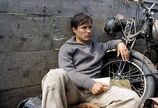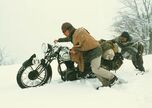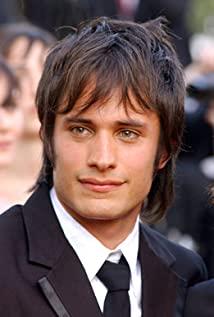The film begins with a humorous and lighthearted, straightforward cut to the topic: two people studying medicine, a motorcycle, a journey across Latin America. Straight roads, flat land, mountains and flowing water, blue sky and white clouds, two like-minded men, and a nice guitar, suddenly thought of "Brokeback Mountain". I snickered, checked it after watching the film, and sure enough, like "Brokeback Mountain", the music came from GS.
Along the way, they enjoyed the scenery, danced with women of all kinds, and were sometimes embarrassed by a lack of money. However, in the third half of the film, these beautiful things gradually recede behind the screen, and the camera begins to focus relentlessly on the other side of the world. They are backward, poor and incomplete. Guevara watched them silently and helped them, something different in his heart began to cry. At the farewell party in Peru, he voiced the voice of revolution. At this time, I glanced at the DVD cover and noticed a line: "You can only change the world if the world changes you." After the trip, he wrote in his diary: "Those who write these diaries are stepping back on their feet. When I landed in Argentina, I was dead. I am no longer me." The end credits narrate that after that, Guevara's friends continued to work in medicine, while Guevara gave up medicine and began to travel all over the Americas to fight for the revolution Struggle to death.
Guevara was 24 years old that year, the same as I am now. What am I doing at the age of 24. . . Mixed in the school, living a leisurely life. In "The Sun Still Rises" just watched yesterday, Cohen said: "My life is fading so quickly, and I'm not really alive." Although he didn't feel "not really alive", he felt the quality of his life. Low, doing something meaningless every day, a lot of time slips away from me. . .
View more about The Motorcycle Diaries reviews











